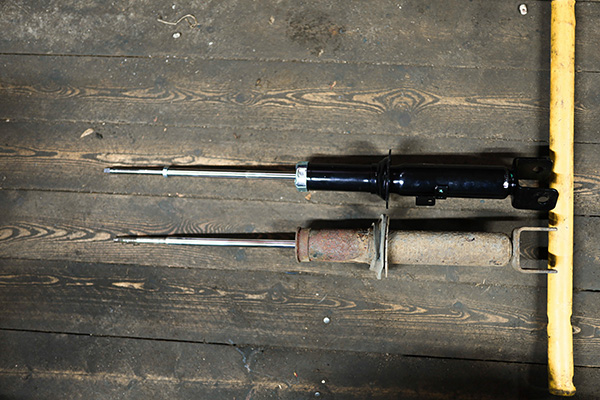
Shock absorbers might not be the first thing that comes to mind when you think about vehicle maintenance, but they are important for your car’s performance and safety. They’re responsible for keeping your ride stable and your tires in contact with the road. When they start to fail, it doesn’t just make driving uncomfortable—it can also create dangerous situations. So, how do you know if your shock absorbers are on their last legs?
Shock Absorbers
Shock absorbers do more than cushion you from bumps. They control the movement of your car’s suspension, keeping the tires firmly planted on the ground. This is essential for handling, braking, and overall stability. If your shocks aren’t functioning as they should, you could experience reduced control and longer stopping distances, both of which are safety concerns.
Common Signs of Failing Shock Absorbers
Spotting bad shock absorbers early can save you from costly breakdowns and dangerous driving conditions. Here are some of the telltale signs that your shocks need attention:
- Excessive Bouncing: Have you noticed that your car bounces more than usual after hitting a pothole or driving over a speed bump? This is a classic sign that your shocks aren’t dampening the movement of the suspension effectively.
- Poor Steering Response: If the steering feels loose or your car seems to wander on the road, your shocks could be the culprit. Worn shocks make it harder for your vehicle to maintain a steady path, especially during turns.
- Uneven Tire Wear: Your shocks help distribute weight evenly across your tires. When they’re not doing their job, you may notice uneven or excessive tire wear, which can shorten tire lifespan.
- Nose-Diving While Braking: Does the front of your car dip dramatically when you hit the brakes? This is a sign that your shocks are no longer providing the necessary resistance to control weight transfer.
- Leaking Fluid: Shock absorbers use hydraulic fluid to manage suspension movement. If you spot oil leaks around the shocks, it’s a clear indication they need replacement.
How Bad Shocks Affect Driving in Lincoln, NE
Lincoln, NE, poses specific challenges for vehicle owners. Due to fluctuating weather conditions and a combination of urban and rural roads, a car’s suspension system must work effectively to handle these variations. Worn-out shock absorbers can make it difficult to navigate uneven terrain and regular roadways. Addressing these issues promptly is essential for maintaining control and preventing unexpected breakdowns.
Should You Replace Shock Absorbers Right Away
If you suspect your shock absorbers are failing, don’t put off repairs. Ignoring the problem can lead to more significant issues, including damage to your tires, suspension, and even the vehicle’s frame. Replacing shocks may not be the cheapest fix, but it’s a crucial investment in your safety and your car’s performance.
How to Prevent Shock Absorber Issues
While no part lasts forever, you can extend the life of your shock absorbers by taking these steps:
- Avoid Overloading Your Vehicle: Carrying excessive weight puts extra strain on your shocks. Check your car’s weight limit and stick to it.
- Watch for Early Signs: The sooner you catch an issue, the easier it is to resolve. Stay alert for any unusual noises, vibrations, or handling problems.
- Schedule Regular Inspections: Have your suspension system checked during routine maintenance. Professionals can identify worn parts before they become major problems.
Don’t ignore the signs of bad shock absorbers! Visit inMOTION Auto Care in Lincoln, NE, for expert suspension inspections and repairs. Contact us today to schedule an appointment!